Historical Underwater Habitat Showcase: Chernomor II, a Soviet Undersea Lab
I've covered almost entirely US underwater habitats so far, which I plan to rectify with a couple of articles on the Soviet side of the 'Man in the Sea' era. At the same time that the US and Soviet Union were racing to the Moon, there was another, less widely publicized race to establish bases within the ocean and populate them.
Chernomor II followed early experiments by private citizens, the so called Icthyander Project, which captured the attention of the Soviet government. It was an impressive habitat in many respects. It was designed for mobility and so could easily raise itself with ballast tanks for repositioning. It was outfitted with a wide variety of scientific instruments relevant to marine research as well.
The interior was very austere, as is typical of these structures, but also of anything built by the Soviet government. Gotta have the framed picture of Stalin however. Can't be exploring the deep without that, the fish must also be indoctrinated.
It was followed by a few other Soviet undersea habitat projects I'll cover in the future, but Chernomor II was the most ambitious. As I recall, like Sealab 2 and 3, Chernomor II was really just an upgraded Chernomor I. Also similar to Sealab III, it resulted in a lethal disaster.
They made an easily avoidable blunder by ballasting Chernomor only enough so it would sink. It was not deep enough to escape the influence of surface weather, and because they neglected to overballast it, a storm came along which pushed Chernomor all the way to shore.
Because the Soviet aquanauts were saturated at the time, this resulted in their painful death from the bends. The Soviet regime was as reckless with their manned undersea projects as they were with their manned rocket launches. Their willingness to throw human lives away in order to advance more quickly resulted in some impressive technical achievements, but a list of casualties too long to report here.
They weren't done, however. Where the Sealab program came to a halt as soon as the first aquanaut died, the Soviet man in the sea program chugged ahead indifferent to their own human losses. The Soviets had big plans for the ocean, as a source of minerals, food and energy...as well as the battlefield of the 21st century.
They weren't wrong. Even after the collapse of the Soviet Union, the Russian Federation has shown keen, ever-increasing interest in undersea domination. From laying claim to the sea bed beneath the North Pole, to development of a next generation nuclear submarine even bigger than the Typhoon class, previous record holder for size.
However, the Soviet and US sea race, despite lofty claims about man's quest to better understand the sea...was ultimately military in nature. The habitats were developed so that aquanauts from either world power could tap into undersea communication cables.
Not much has changed in that respect. Renewed US, Chinese and Russian interest in the ocean remains focused on military uses, and resource development. The enormous new submarine class is reportedly for "Arctic research" which translates to oil exploration, and Chinese efforts to establish an underwater base in the South China Sea are reportedly military in nature as well.
If that surprises you, it shouldn't. There were 70 undersea habitats in history. Today there are three, only one of which operates in the open ocean for scientific purposes. Meanwhile the US alone operates a fleet of 75 nuclear submarines, each of which is larger inside than several habitats of the type I've covered here:
It just goes to show that science does not motivate public spending even a fraction as effectively as fear. The new generation of deep sea bases are only being built because of contention over dwindling resources, and desire to control the oceans as climate change melts the polar ice caps.
So it is that I predict, if ever there's an extensive human presence on the ocean floor, it will be for military reasons. Love it or hate it, the fact of the matter is that just like during the Cold War, nothing makes governments splash money around for expensive hostile environment habitation projects quite like good old fashioned fear.
More to come, watch this space.
Stay Cozy!
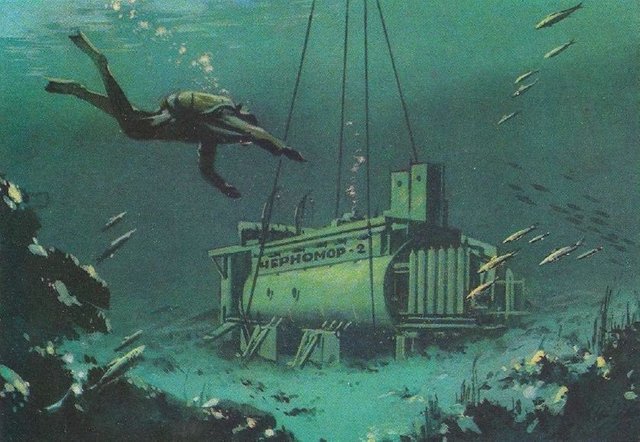



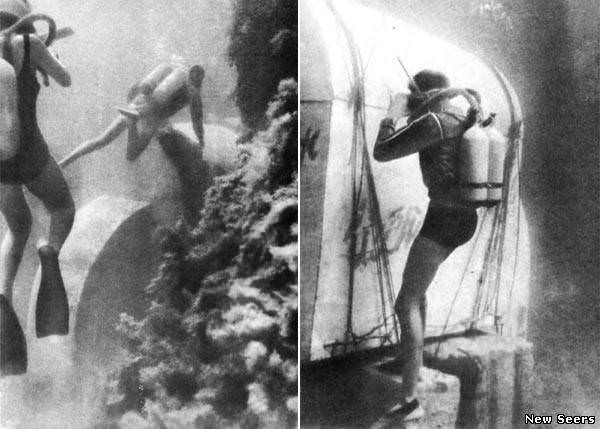

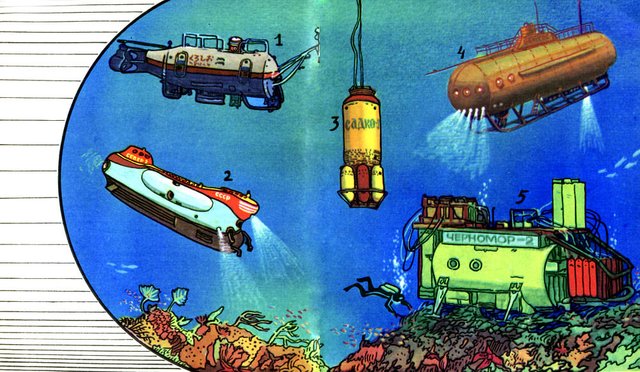

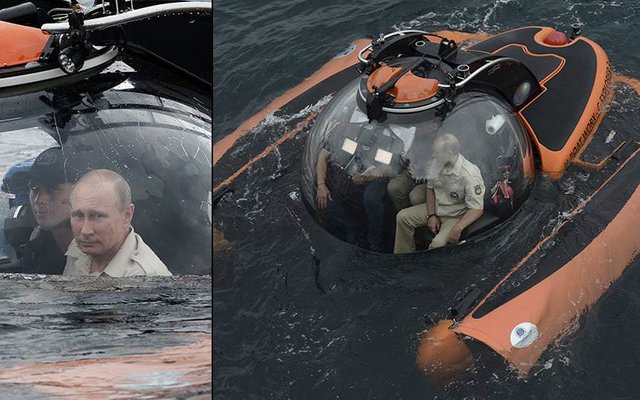



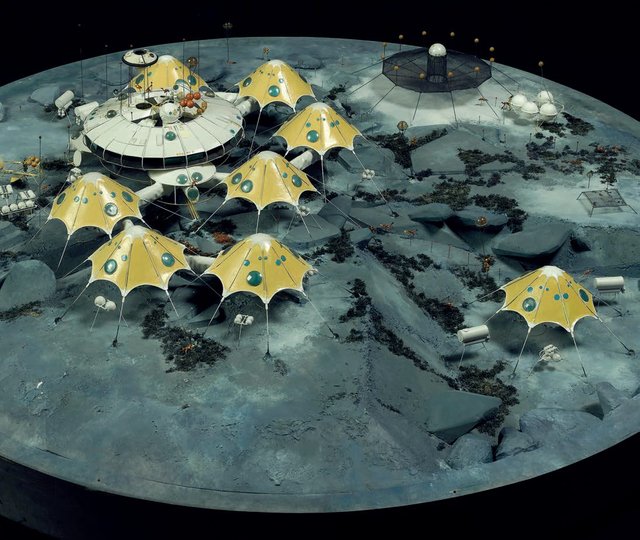
You're right - military development is what's going to drive the bulk of future underwater exploration, one way or another. The costs involved practically mandate that.
Also, despite personal curiosity I'd never climb into a Russian built death trap. Their generally casual disregard for even basic safety measures is legendary. Lives are disposable. As you alluded to in your article, there's been a number of deaths that occurred in various Russian programs, some of which are pretty difficult to get specific info about. Their space program is a good example. While not exactly secret in the strictest sense, most people aren't aware (for example) that at least one Russian astronaut burned up in space, and another one may have drifted off into deep space. If it advances Russian interests and capabilities, people are disposable - more so, perhaps, than even most other governments.
Final note, the name Chernomor is a portmanteau in Russian meaning literally "black ocean."
Wow this all look so awesome. We are really gonna be sponge bob square pants one day. Staying water must be so much fun. The last picture it does like a camp under water. I really wanna wait to see how is it gonna be.
If there was an award for the most entertaining, AND informative person on steemit, you @alexbeyman would definitely get my vote. I have enjoyed so many of your stories, and so many of your educational type stories about your steem mobile, about your hamster loving e-bike, your steemmobile, and this series on the seastead stuff, highly educational. The future is not written yet, It will be interesting to see where and how far Elon Musk takes Humanity in the future. When you look at where he is taking his Tech, to me it seems obvious that the majority of it is for a closed system habitat. Whether in space or underwater, his improvements in electrical storage and generation are ideal for such closed systems.
People say we need government to fund scientific pursuits, but the primary purpose of every government program is to expand government rather than knowledge.
Hmm. I think private interests will indeed develop oceanic resources in the coming century. They have already started in fact. That's because the ocean is fairly cheap to access and retrieve valuable resources from, compared with space.
Space is the real problem, for anybody whose perspective is anti-government. How do you fund large human colonies on the Moon or Mars without any government backing? What will you do on the Moon or Mars to pay for it?
Thanks to robots, there is no profitable activity that can be done in space which requires a human presence. Asteroid mining can be done by robots. Satellites are unmanned. There's a market for sub-orbital joyrides for the wealthy, but that doesn't accomplish the goal of putting millions of humans on other planets.
Yes, SpaceX and other private spaceflight companies exist. But they have not sent humans into space yet, and when they do, it will be because NASA (a government agency) pays them to do it. The existence of private entities that supply space access as a service to NASA isn't new: The Apollo program and everything after it was facilitated by the likes of Lockheed Martin and Boeing, for example.
The only thing new about SpaceX is that they do not receive cost plus contracts, so they have to deliver the service they promise to at the price they quoted from the start. This is a good development, but it does not solve the fundamental problem.
The problem is that the only reasons humans have ever been sent into space is because the government forced it to happen. There never was and still isn't a way to profit from populating space with human beings.
The ISS for example was created by government dictate, simply for there to be a destination in space to send humans to. Without that government dictate, the ISS would not exist because there's nothing to do in orbit that generates a profit, which also requires a human presence.
Even if gold bricks were stacked up eyeball deep on the Moon, it would cost more to retrieve them than they are worth. Mining on Mars or the Moon only makes sense if it's for the benefit of an already existing colony of humans on the Moon or Mars. There is no way to sell those metals to Earth at a profit.
But how do the colonies get built, if not by arbitrary act of government? I think a more balanced, compromised view works better here. Government should only do what is necessary, but cannot be done at a profit. This is for example why the US postal service still exists, to deliver mail to remote locations that UPS and FedEx won't, because it's not profitable.
I'd argue that space colonization is in that same category. It needs to happen but there's no way to make it self-supporting, financially, for the reasons outlined above. Corporations therefore won't do it, not without the government using taxpayer money to force it to occur, subcontracting parts of the project to said corporations.
I think the dreams of commercial rocketry from the 1950s science fiction stories are clearly dead, but I think there are enough people with an instinct to explore the frontier to make lunar and martian colonies inevitable in the long run, whether because overpopulation becomes a real concern or because governments are too oppressive. The logistics are a nightmare though.
The ocean is indeed an unexplored frontier as well, and there are several interesting seasteading proposals. Some are explicitly aimed at using international waters to escape governmental overreach. Logistics aren't much of an issue, comparatively. The technology has been around for decades.
Alright, you've proposed two possible pressures that may result in space colonization here.
The first one is that a lot of people want to colonize space. However I don't think that will get them anywhere. It's incredibly expensive to colonize space. A bunch of space enthusiasts can't overcome that barrier with passion alone.
The second one is overpopulation. The problem here is that space colonization is not and never was a workable solution to overpopulation for the simple reason that even if every country on Earth was launching rockets at the rate of one per minute, it still would not move humans off the Earth faster than new ones are born.
I agree the technology exists, but expense is the barrier. It is not trivial, either. Ignoring the high cost of something doesn't make it cheaper, and even if one is able to raise the money from donors, if the project doesn't generate more income than it costs to maintain, it will not be permanent.
This is why, as I have written in the past, nearly every underwater habitat ever built was scrapped to recoup some of the cost by selling off the metal it was made out of. None were simply left in the water.
Out of the three in operation today, one is operated with university funding (Aquarius, formerly government funded) the other two are the Jules Undersea Lodge which pays for itself by hosting tourists, and Marinelab (in the same lagoon as Jules, owned by the same guy) which is supported by revenue from the operation of the Jules as a hotel.
I do not mean to be a downer. But this is the difference between dreamers and executors. The world has plenty of dreamers. It has very few people who can actually make those dreams happen, and fewer still who can make them happen in a lasting way.
This is because at the end of the day, stuff like underwater bases, space stations and so on are very expensive. It has to be paid for somehow. If it's not going to be paid for with tax dollars, then it needs to generate profits somehow to pay for itself.
I don't think overpopulation is nearly the threat many present it to be, and even if it were, I don't think space colonization would be a cure for it, just an incentive for some to pursue it.
And don't get me wrong, I don't mean to trivialize the cost of oceanic exploration or colonization either. However, since government has for the most part been behind it thus far, we don't really know what the real prices or potential innovations are in the industry waiting to be unlocked.
For the moment, I don't think sea floor habitation is likely, but The Seasteading Institute offers some interesting ideas, and this interview explores some of the ways it could generate a productive profit.
Great informative and interesting post.
@alexbeyman i have read your every single underwater artical and every single artical is worth to read.
Chernomor II is almost look like a electric transformer.
Upvoted and resteemed
Alex - I was curious why didn't you continue the series of underwater habits in last couple of days..... As a lady I have a little knowledge about technical things & video games, so it's hard to integrate with your posts very well....
While you posting America plans to underwater I guessed Russia also try it too... Because, both are copy cats of each others.... Nice you share this knowledge.... They also tried the same way as America did....
+W+ [UpVoted & ReSteemed]
@alexbeyman,
Wow that's awesome! Unlike US, RUS seems got big plans and I think they still do planning them! Great article friend! This seems to be a very interesting topic to discuss!
One more thing, SBD at it's top, hope you have them! Enjoy!
Cheers~
I sold 59 sbd at around 4-5 usd each and made an easy $215. If I had waited ten more minutes it would have been over $400. Oh well, I still did well.
@alexbeyman,
Anyway you took a nice profit and I also converted all to STEEM :D
Cheers~
There is so much to learn from the ocean, maybe one day we will have a underwater city, or maybe that is just in my dreams...
Nice post alex, Keep posting and thank you for what you do....
What a good invention and very useful
Yes, we are constantly evolving and this makes things easier for us
@alexbeyman
This post has received a 100% upvote worth $0.17 from @minnowspower thanks to: @theguruasia
MinnowsPower is not a bot, I am a Crowdfunding Hybrid
One small UpVote of Yours build MinnowsPower and MinnowsPower will Not Forget Your Support...!!!
(Limited Service Offer) Send 0.01 SBD and get $0.025 - $0.03 worth upvote from @MinnowsPower